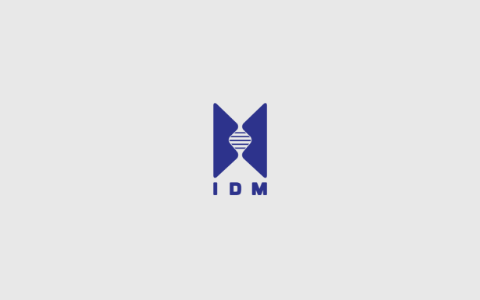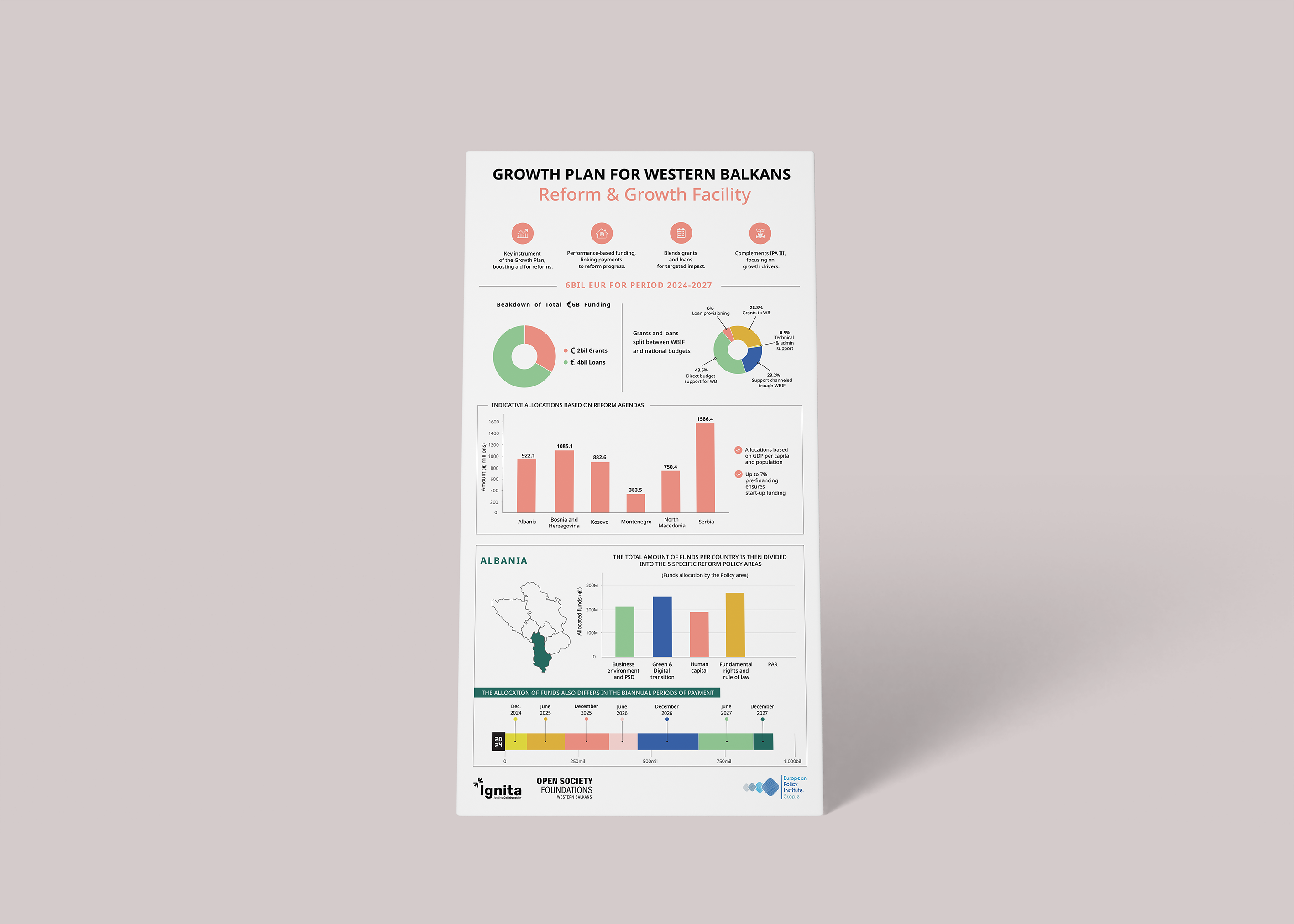Author: Gjergji Vurmo
*This blog was originally published in www.biepag.eu on September 21, 2021.
Seven years ago, BiEPAG colleagues produced an important policy paper entitled “The unfulfilled promise – Completing the Balkan enlargement”. It analysed the prospects for the Western Balkan (WB) countries’ ‘European future’. At that time, Croatia had just joined the club and the EU’s complaints about ‘enlargement fatigue’ had reached a peak with Juncker’s famous statement – “no enlargement under my watch”.
The BiEPAG paper tried to raise awareness in the EU about the risks of downgrading enlargement’s importance. Many of those risks, unfortunately, have come to pass.
In a nutshell, the paper described four scenarios for the EU’s enlargement and its relations with the WB region: “the continuation of the [then current] enlargement dynamics of gradual but slow progress [Scenario A]; two scenarios wherein the EU loses the Western Balkans either in never-ending negotiations [Scenario B] or the enlargement process is abandoned altogether and other powers compete with the EU in the Western Balkans [Scenario C]; and the Balkan Big Bang that prioritises rapid enlargement [Scenario D]”.[1] Similarly, an analysis by the EU Institute for Security Studies in 2018 suggested three scenarios which, in brief, contain a positive, a negative and a very negative possible future for EU-WB relations and enlargement policy until 2025.[2]
What happened in the meantime(2014-2021)?
What we can say for sure in 2021 is that BiEPAG’s Scenario D, the “Balkan Big Bang”, didn’t happen and that chances for its actual occurrence in the near future are almost zero.
After Croatia’s accession, the supposed ‘enlargement fatigue’ depended exclusively on arguments such as the global and EU financial crisis, corrupt WB politicians, or the ‘bad examples’ of enlargement (Romania and Bulgaria). A lot more ‘new arguments’ surfaced in the years that followed to fuel EU’s enlargement fatigue, including the Syrian crisis, the refugee crisis, terrorism, the rise of the far right in the EU, asylum seekers from WB countries, threats to the rule of law in Poland and Hungary, organised crime in the Balkans and their drug trafficking business in EU, and so on.
In order to keep the whole idea of the WB’s ‘European future’ alive, the Berlin Process was launched in 2014. Although this initiative helped achieve some results and keep optimism about the EU alive in the region for some time, today we see that it also aimed to please both supporters and opponents of enlargement in the EU. It spoke to enlargement supporters by emphasising the need to develop the region; yet it granted opponents space to basically stall the accession process. Ultimately, this was a dream come true for Balkan politicians, who were becoming increasingly autocratic as the EU focused its attention on security and funds (not necessarily for economic development) rather than the rule of law and democratic consolidation. Accordingly, they could pick and choose from the Berlin Process’ menu of priorities, which – accidentally or not – included no mention of rule of law benchmarks. On the other hand, the only process which had something to do with the region’s need for more democracy and rule of law – the enlargement process – collapsed, with the help of EU members themselves.
As a result, the second thing we know for sure in 2021 is that Scenario A, ‘Business as usual’ for EU accession, actually did take place for a while. Although three years ago the whole enlargement policy was stopped by France, allegedly with the mission of stopping this ‘business as usual’ course, it is more than obvious today that the new methodology was nothing but a face-saving trick. Nonetheless, France’s veto marked the end of Scenario A and the further consolidation and expansion of Scenario B, “Following Turkey’s path: Alienation from the EU”.
So the third thing we know for sure today is that alienation from the EU is actually happening. However, Turkey was not the only, or even the main, source of inspiration for WB countries following the new course. Member States such as Hungary and Poland, and politicians toying with anti-EU and even fascist sentiments in the so-called ‘old EU members’ such as France (Marine Le Pen), the Netherlands (Geert Wilders) or Germany (AfD), combined with the example of Brexit and the factors that enabled it, jointly guided WB political leaders towards alienation from the EU.
As progress towards the EU was always seen as an indicator of the consolidation of democracy, WB autocrats now find it easier to sell their narrative – “our democracy is fine; it’s the EU’s Wilders and Le Pens who don’t let us in”. They do so in spite of global reports which repeatedly report a steady decline of democracy, alarming levels of corruption and state capture, links between organised crime and politics, a dangerous decline in media freedom and freedom of expression, and so on.
A final push towards this course of alienation was enabled by the EU bodies and Member States themselves, who have repeated historical and tragic mistakes again and again. It is not only its enlargement policy, but even the EU itself that has lost credibility in the eyes of WB people. This is owed to several factors – unrealistic assesments about reforms in WB countries; the EU turning a blind eye to the decline of democracy in the WB (and in Member States too) and even funding autocratic regimes with IPA funds; the mockery of accession negotiations with Serbia and Montenegro, which served the corrupt elites but not the people’s demand for democracy; culminating with the allegedly ‘new’ accession methodology (2018/2019) and Member States’ refusal to open accession talks with Albania and North Macedonia (2018 – present).
The alienation from the EU, unless Brussels decides to stop it in the next two or three years (which is highly unlikely), is just an interim phase towards the next stage. The beginning of that stage is already surfacing, and BiEPAG have rightfully named it ‘New Unpredictability’. Ignoring the signs and refusing to talk about it won’t prevent its full emergence over the next five years or so.
Where are we headed in the new decade (2021-2030)?
In BiEPAG’s worst case scenario for enlargement, the EU and WB countries de facto abandoned the policy, and a new level of unpredictability overtook the region, including nationalist- and conflict-driven agendas. In this scenario, the days of European values and a pro-Western consensus would be gone, and WB countries would pursue different foreign policy priorities and partnerships. Yet, they are all united in one core characteristic – the rule of law and democracy would no longer be a top priority, not only because they never have been for the Eastern powers (Russia, China, Turkey, Gulf countries), but also because security is now considered a much greater priority for the Western ones.
BiEPAG argued that this scenario was less likely than others. Today we see that this scenario was not as unlikely as we thought in 2014. Some of its features already sound familiar for many of us living in the WB. Not only have Eastern powers penetrated the region, but now the West struggles to articulate a common position on many of its challenges, and even on the Eastern players themselves. The current decade is slowly unfolding as some version of Scenario C, “Abandoning Enlargement and New Unpredictability in the Western Balkans”. At this point, this scenario seems unavoidable, so the most logical need is managing it in order to prevent its misuse.
Hence, the question is: What version of Scenario C do we want?
Considering that the Balkan Big Bang will not happen any time soon, pretending that enlargement is fine so that WB countries won’t flirt with the East will not work. Albania is already doing so with Turkey and some Gulf countries, while Serbia and a few others are way beyond the flirting phase with Russia and China. A new approach is needed to keep the WBs firmly anchored with the EU. So, why not take this opportunity to prioritise democracy?
Until not so long ago, speaking about abandoning EU enlargement was a heresy, especially for civil society. This is because we wrongfully identified EU integration with democratisation. However, the past decade showed that this was not true. Serbia and Montenegro moved forward with EU accession negotiations, and they both became less democratic while doing so. In fact, some leaders used EU accession to strengthen their positions.
So why shouldn’t we at least talk about the alternatives when our political leaders are actually working quite actively against the EU’s transformative power?
Indeed, some EU capitals have been pondering the implications of alternatives to EU membership. Some think tanks have already offered possible pathways such as the Norwegian model or differentiated integration. These are only a few of the otherwise rich array of alternatives which may be taken into consideration to avoid further unpredictability in the relations between the EU and the WB, or the latter’s democracy.
Finding life beyond EU enlargement
Over the past decade we have continually pretended that enlargement is important for the EU, and the result was a mockery of the accession negotiations with Serbia and Montenegro. We kept pretending that it held transformative power, even while the EU shook hands with autocrats in the region and even inside its own borders. The result is that autocrats joined efforts against the EU, and against our quest for democracy in the WB countries.
We cannot afford to be in denial any longer.
Enlargement is not in crisis, as we have long argued. Rather, it is over – at least until the EU solves another reality about which it has been in denial, namely its own structural problems, its own decline of democracy, and the rise of extremist political ideologies and public support for them.
We should not stay truthful to a process that is not delivering anymore, but to the goals we’ve designed the process for: peace in the region, democracy and prosperity for our citizens. For that, the EU and the WBs need new options to sail the turbulent waters of 2020s, and maybe even those of the next decade.
Accepting the above facts will make it easier for us to actually move forward safely. An EU that doesn’t waste energy on calming down opponents of enlargement, but rather, devotes them to solving its structural governance challenges would result in a much stronger Union and a more credible player in the eyes of WB citizens. Just as the EU needs to address its own challenges, we in the Balkans must accept that there is life beyond enlargement. However, we must figure out a future that goes through democracy building and the rule of law. One of the most important lessons from the Afghanistan debacle is that tolerating corruption, state capture and rule of law decline kills not only democracy, but the whole country.
We should take the next several years to consolidate our democracies in a new context of relations with and support from the EU. Failing to do so would be catastrophic.
[1] See “The unfulfilled promise – Completing the Balkan enlargement” (BiEPAG), May 2014, page 6. Source: http://balkanfund.org/wp-content/uploads/2014/05/Policy-Paper-Completing-Enlargement-2.pdf
[2] Namely, Scenario 1, ‘The hour of Europe’, which shares the (perhaps excessive) optimism of BiEPAG’s Scenario D (‘Balkan Big Bang’); Scenario 2, ‘The Balkans in Limbo’, which in essence is the same as BiEPAG’s Scenario A (‘Business as usual’); and Scenario 3, ‘The ghosts of the past’, which starts with BiEPAG’s Scenario B and reaches its peak with BiEPAG’s Scenario C (or worse). See “Balkan Futures – Three scenarios for 2025”, EU ISS Chaillot paper no 147, August 2018. Source: https://www.iss.europa.eu/sites/default/files/EUISSFiles/CP_147%20Balkan%20Futures.pdf.





